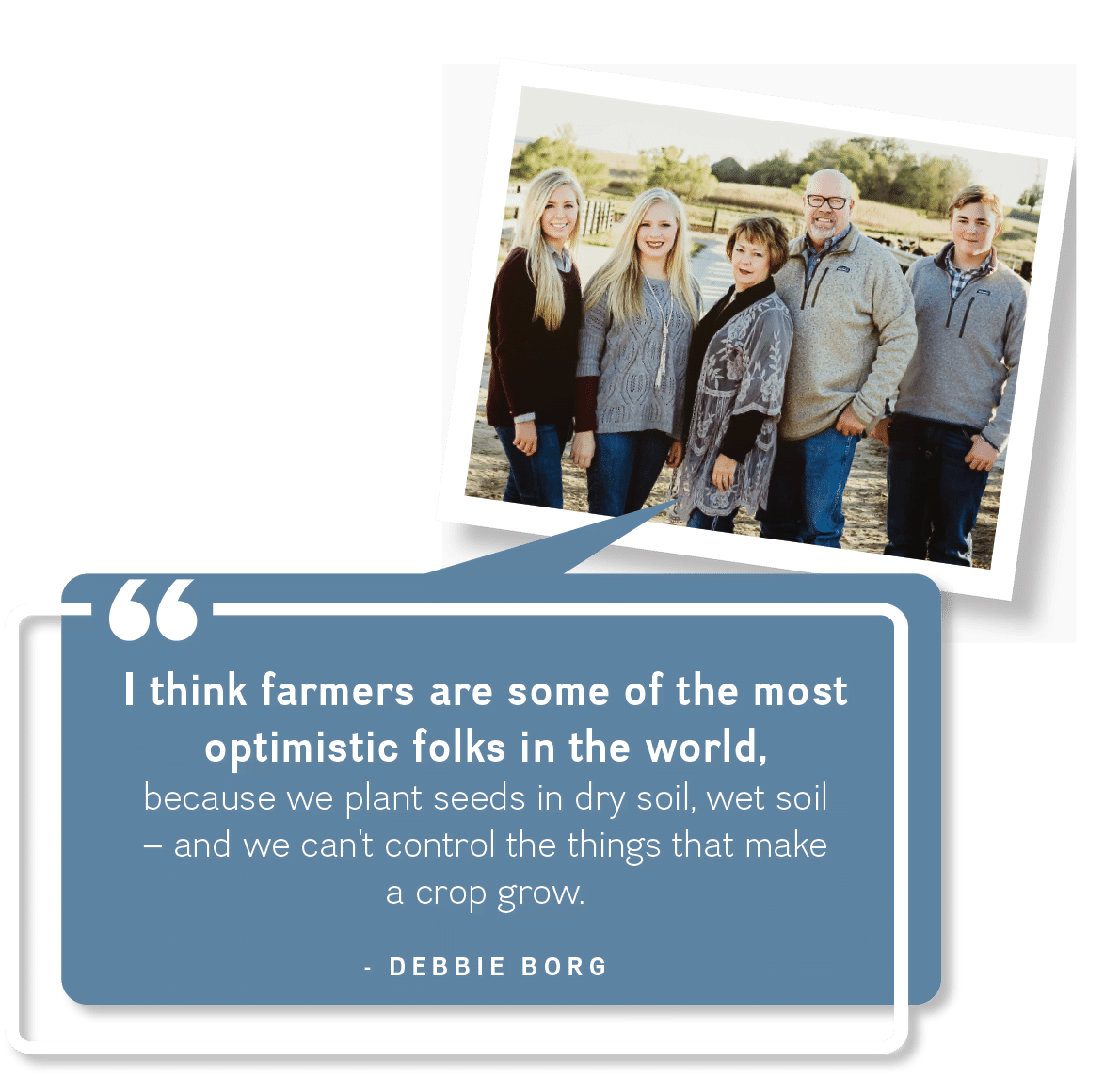On the farm, uncertainty is a reality – which means fearing it isn’t an option.
After 25 years of farming with her husband and, eventually, three children, Debbie said she isn’t afraid of the unexpected – or even the unprecedented.
In the face of the 2020 coronavirus pandemic, the Borg family put a temporary freeze on expansion and improvements to their farm.
“Will we survive?” Debbie asked. “Yes. But we are in survival mode.”
In some ways, a pandemic is not so different from the challenges farmers have been facing for generations. Droughts. Floods. Tornados. Hail. Economic calamity.
Many variables in the ag industry will never be controlled, yet farming has advanced a great deal in the past 50 years. Advances in research, technology and basic techniques have helped prevent other widespread disasters, such as the Dust Bowl of the 1930s.
Debbie said her mother-in-law doesn’t speak of “the good old days.” Instead, she calls them “the hard old days.”
Today, an increasingly wide array of information is available to make agriculture more strategic. Producers have the ability to customize seeding rates and fertilizers in their fields based on moisture levels, geography, soil composition and more.
The Borg family has been “no-till farming” for more than 35 years. That means they disturb the soil structure as little as possible, preserving its nutrients, building organic matter and preventing erosion.
“There’s nothing short-term in a farmer’s plan,” Debbie said. “They have to be long-term thinkers.”
She said her family owes what they have to the hard work invested by her husband’s parents – and his grandparents and his great-grandparents before them. That’s just another reason uncertainties such as weather and disease could never put an end to the life they’ve carved out in northeast Nebraska.


